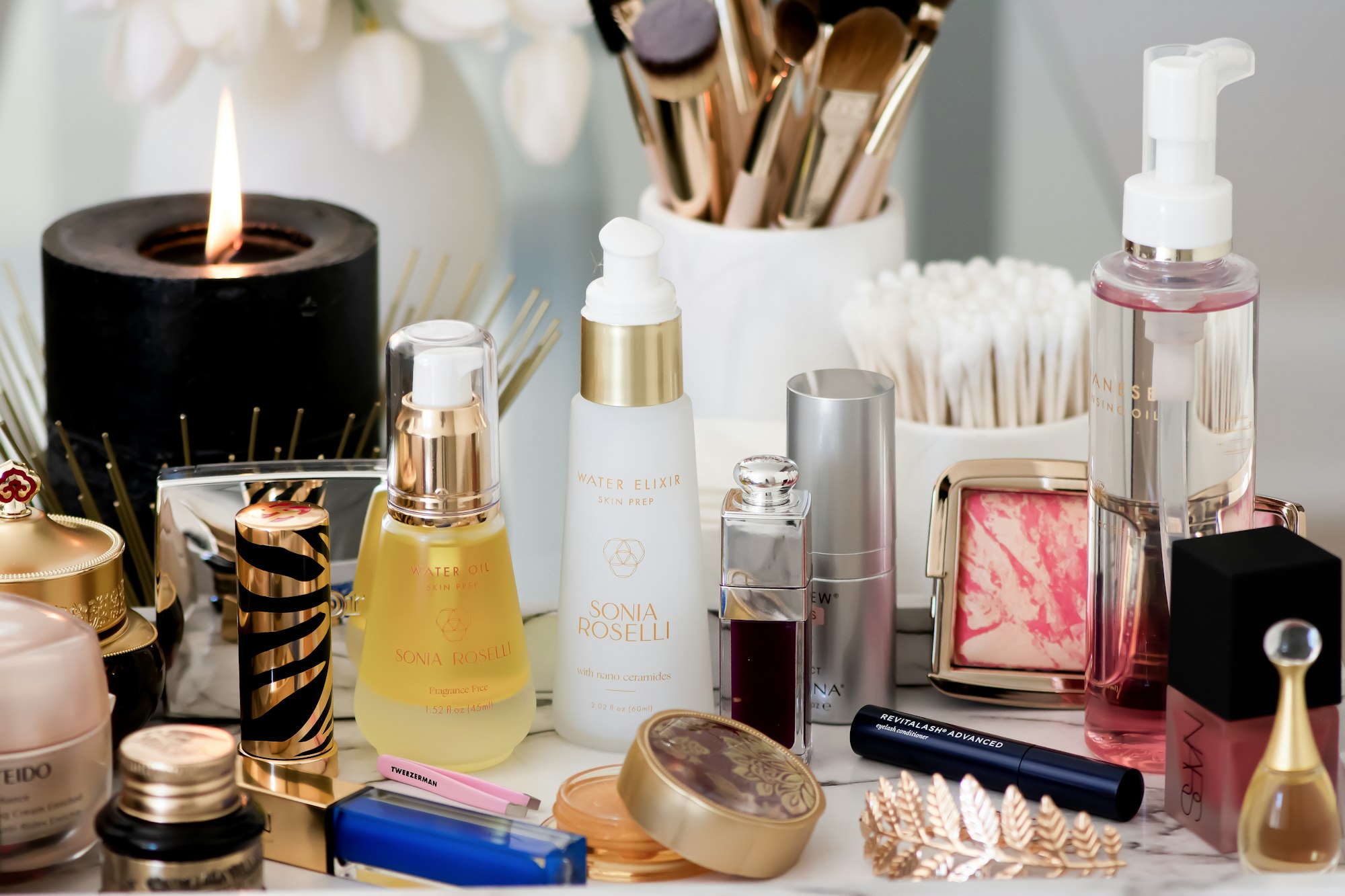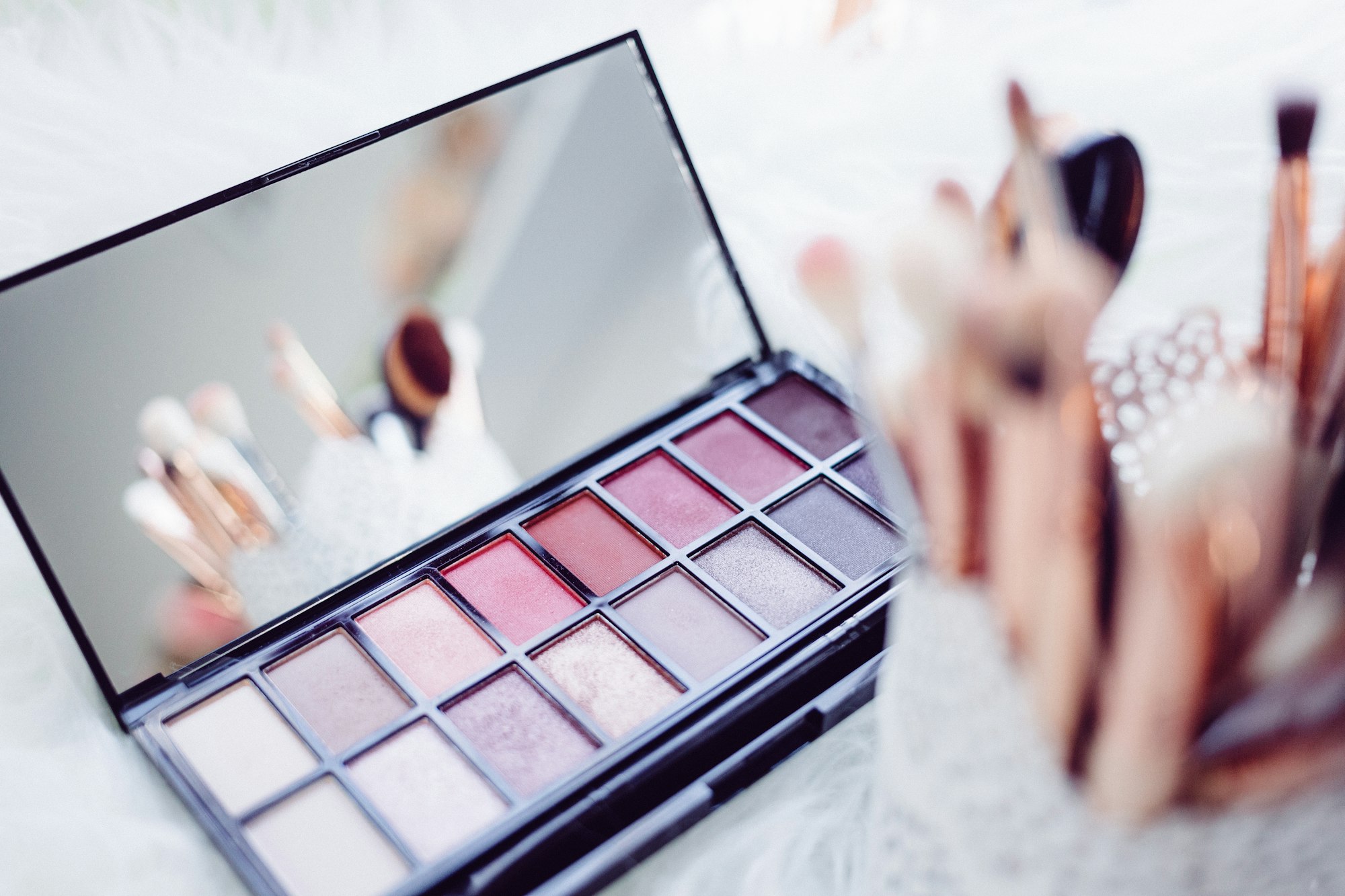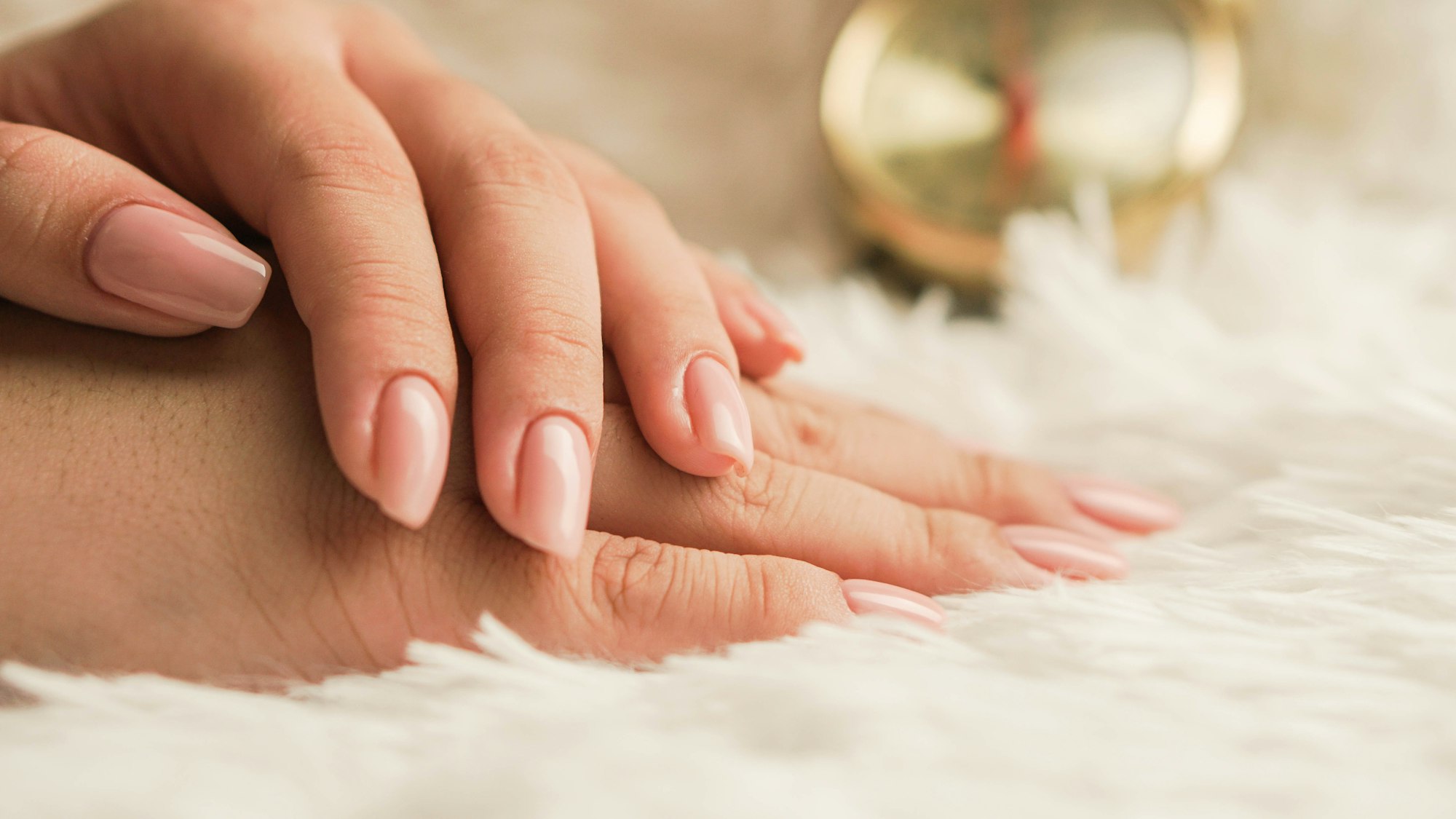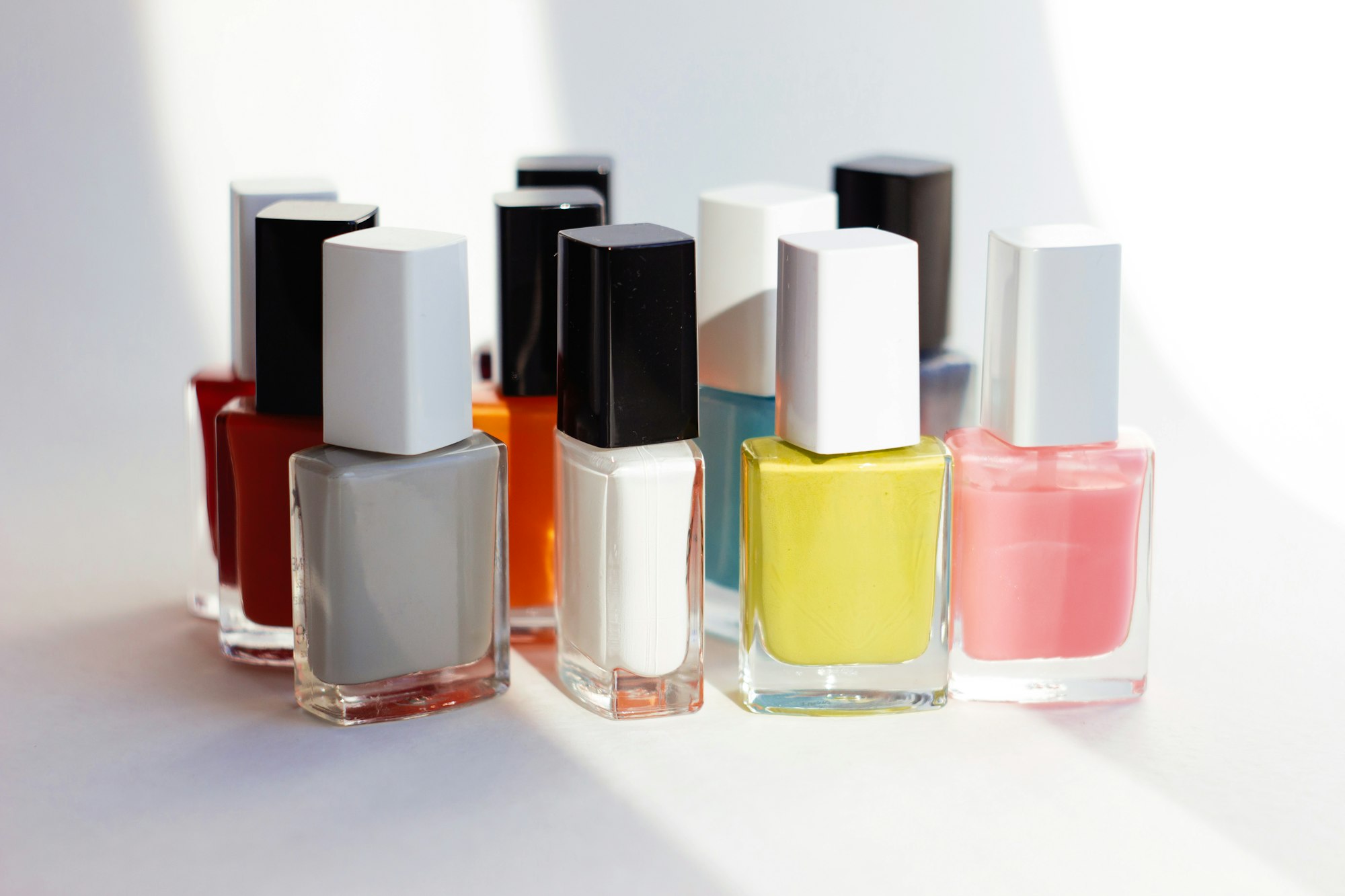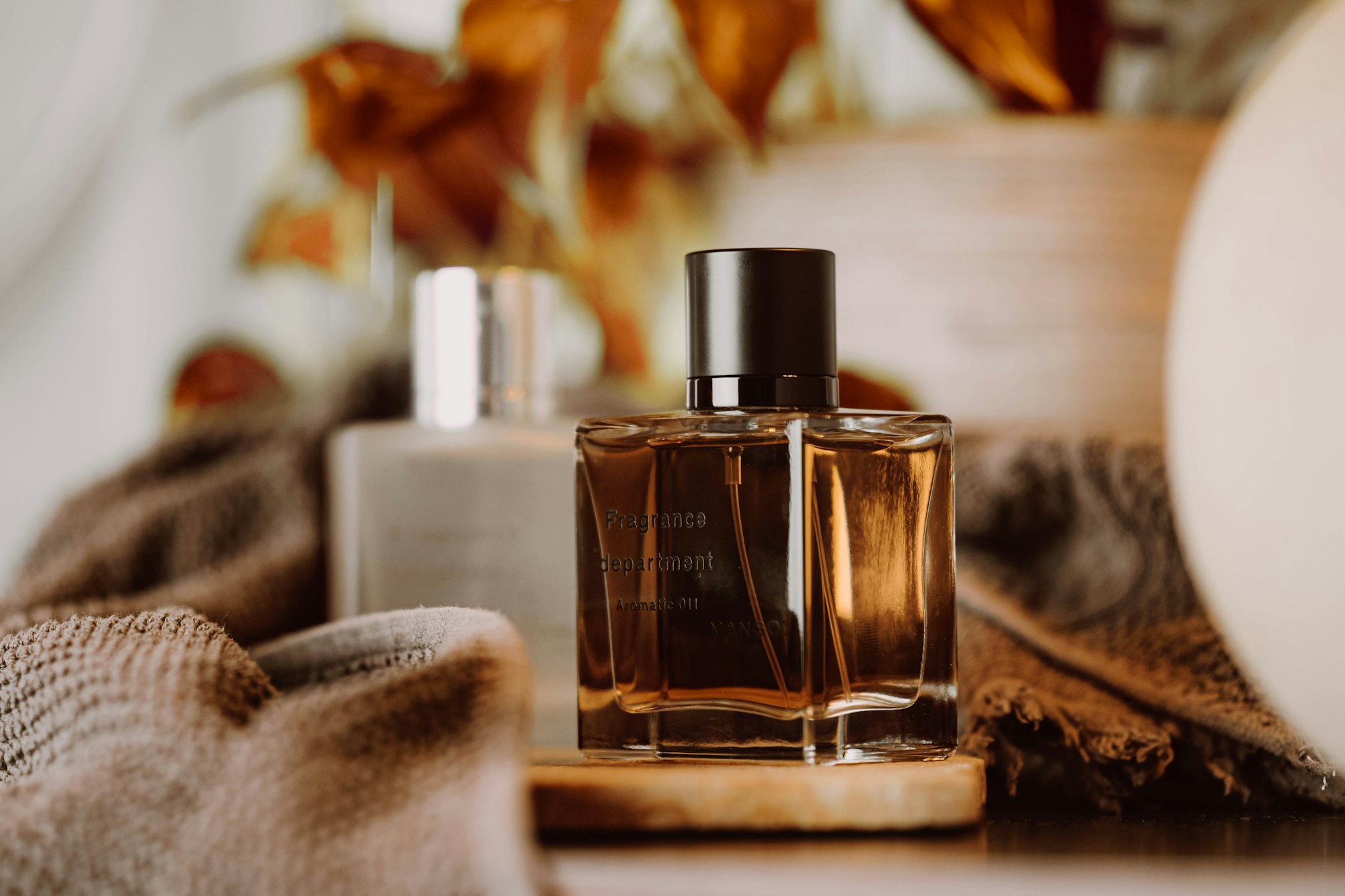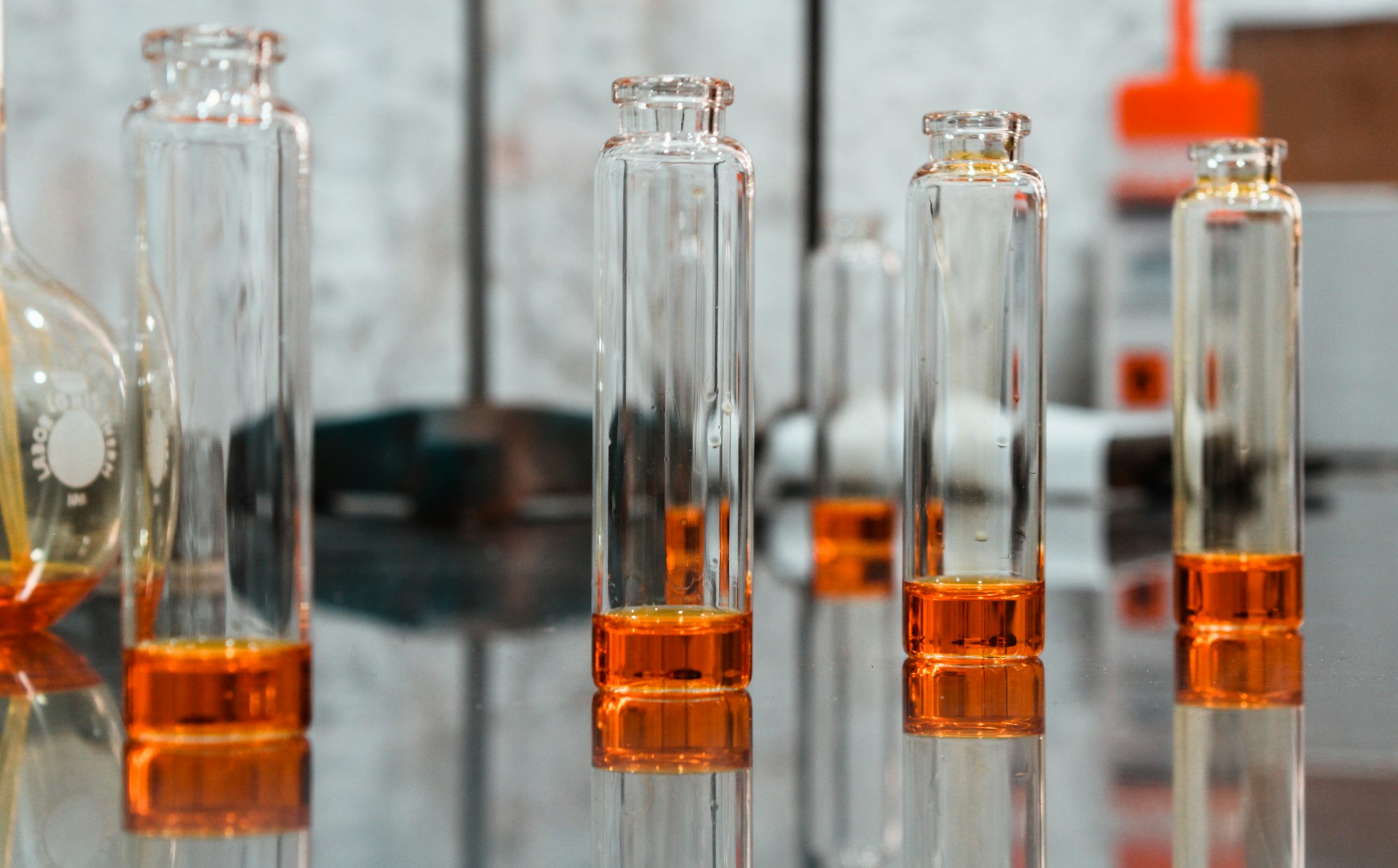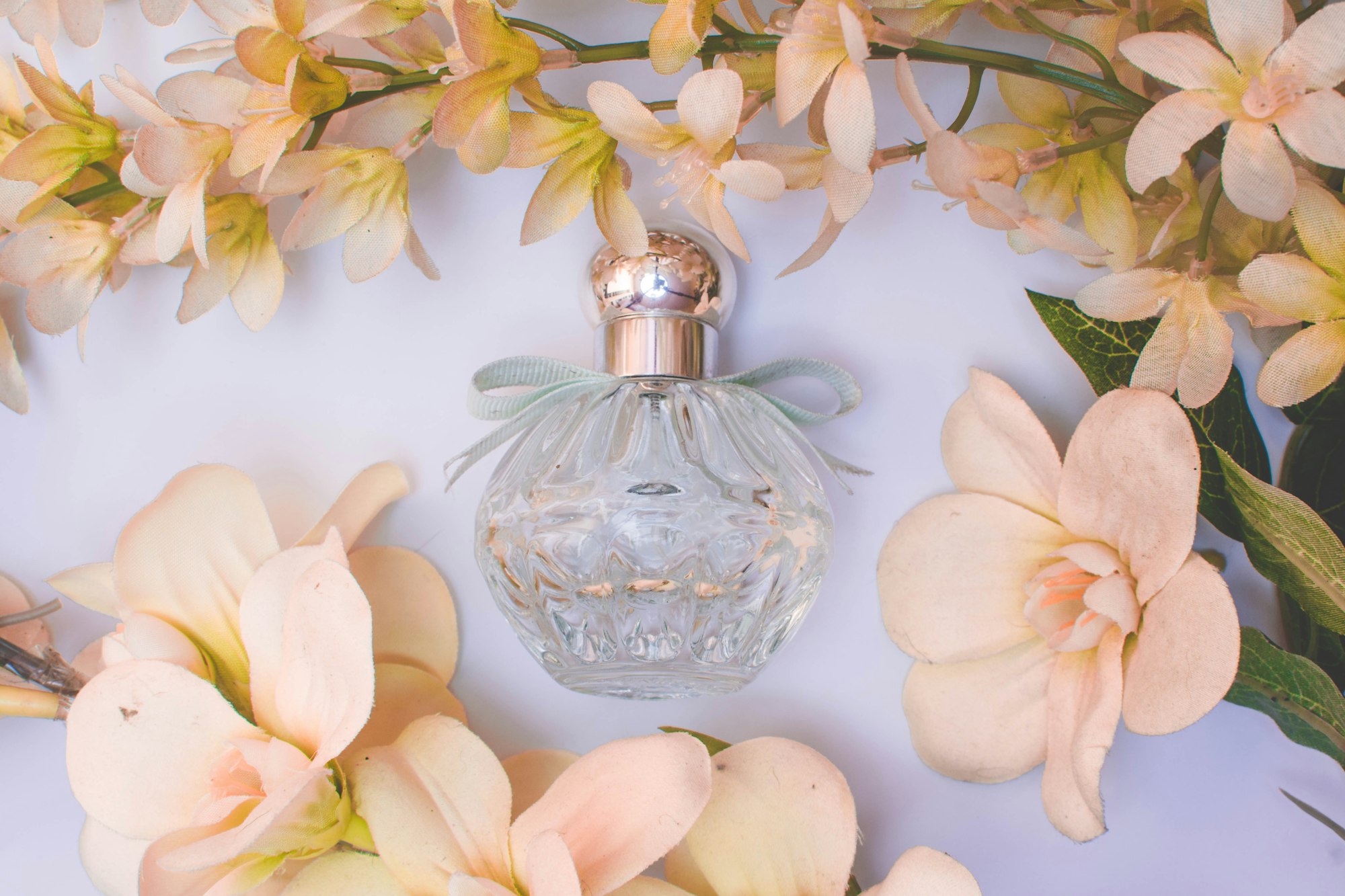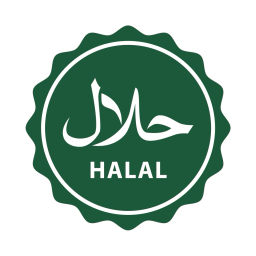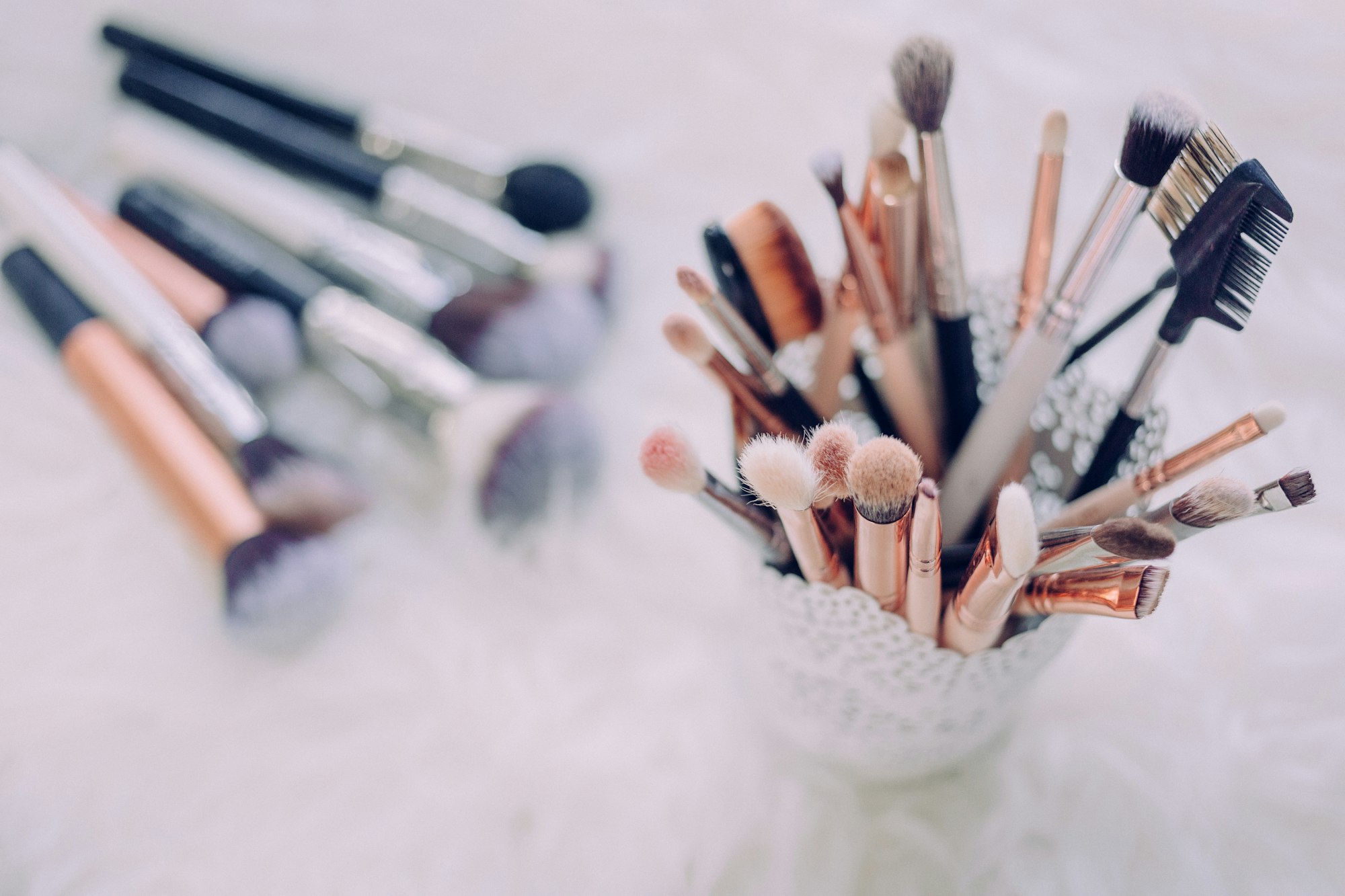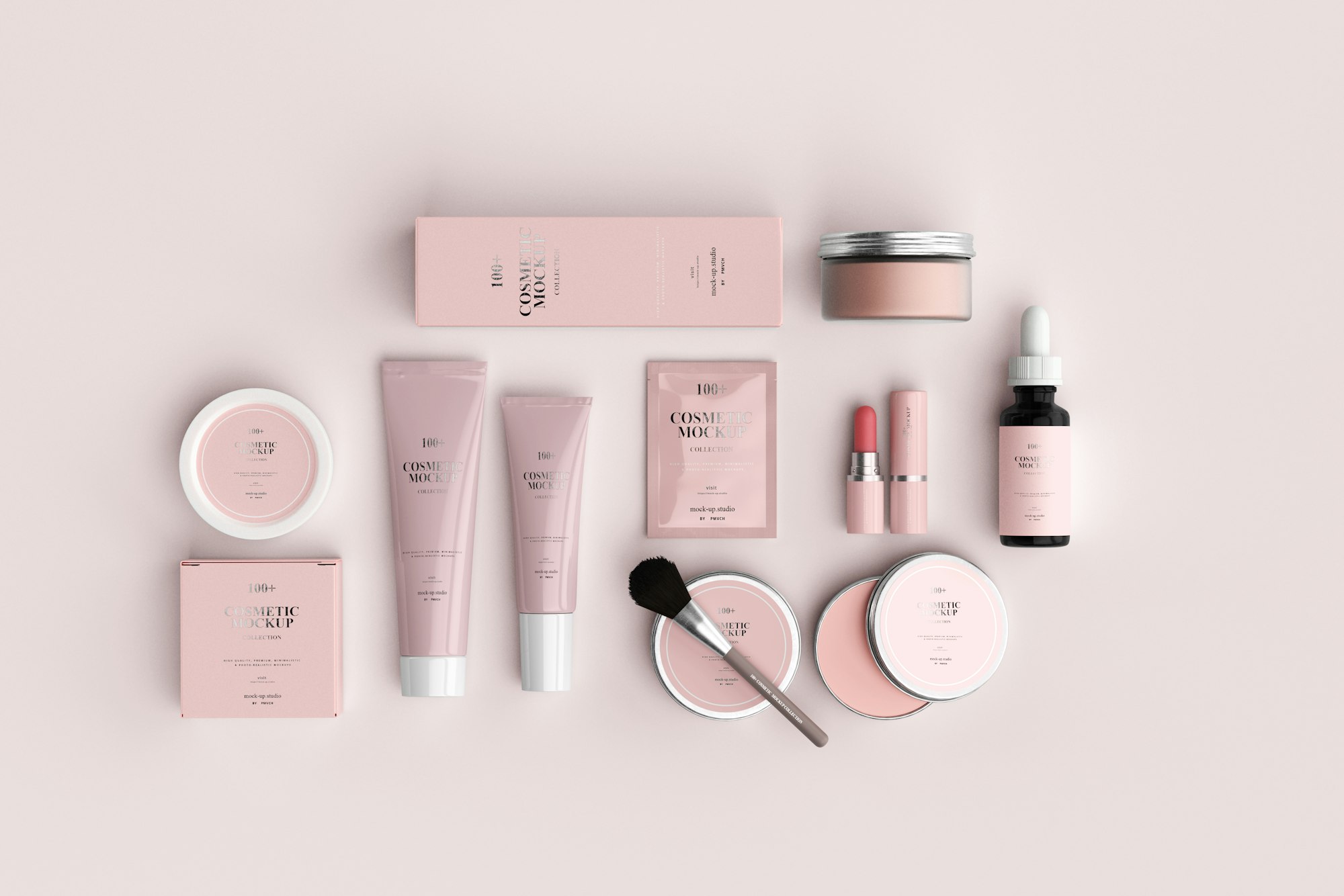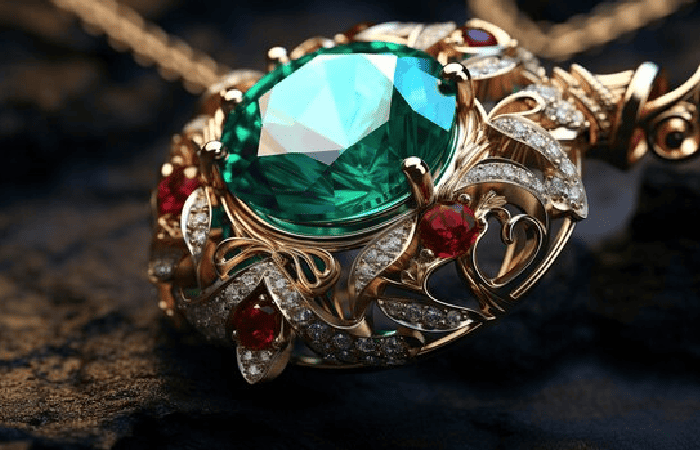Embracing Beauty with Faith: The Journey into Halal Cosmetics
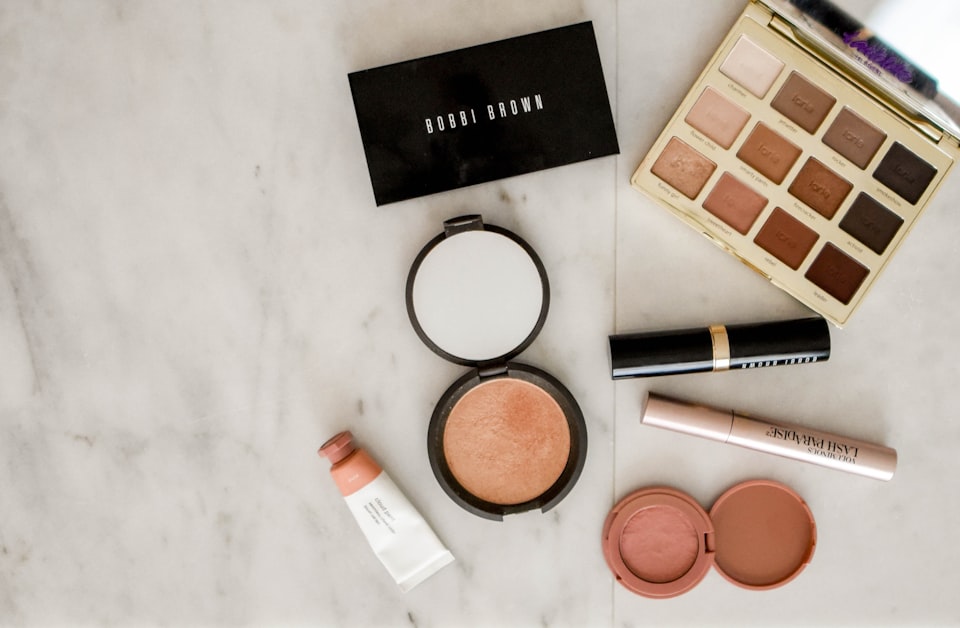
Halal is a term for what is allowed and legal in Islamic law, while haram is forbidden. Islamic law incorporates the halal-haram rule within its overall framework. Food is commonly linked with the term "halal." Apart from food, nevertheless, this phrase encompasses a broad range. In every sphere of a person's life, including their religion, attitude towards products, and source of income, halal is important.
Brief Overview of Halal Cosmetics and Their Rising Popularity
There are around 2.4 billion Muslims who make up the global customer base. Halal medications and cosmetics are becoming more popular and in demand. It is estimated that the worldwide halal market will develop at a compound yearly growth rate of 6.8% through 2024. Halal cosmetics are more appealing to non-Muslim consumers as well. It is due to their association with ethical consumerism and stricter quality assurance requirements, in addition to the vast Muslim population that has a strong allegiance to halal products.
Cosmetic goods that are halal cannot include substances that come from any of the following: carrion, blood, human body parts, reptiles, pigs, or insects. It is essential to maintain hygienic and pure conditions throughout the preparation, processing, manufacturing, storage, and transportation of halal cosmetic items. The halal cosmetic items with the halal emblem need to be identified as high-quality, pure, and safe products.
The Importance of Aligning Beauty Practices with Religious Beliefs
For Muslims who want to live their life according to Islamic principles, it is important that they reconcile halal beauty practices with their religious convictions. "Permissible" in Arabic, halal covers a wide range of Islamic rules, including those concerning grooming and personal hygiene. Adopting halal beauty practices is a sign of a person's strong religious devotion and desire to lead an Islamically-valued life. The benefits of Aligning Beauty Practices with Religious Beliefs are:
-
Spiritual Fulfilment: Inner serenity and a sense of spiritual fulfilment can be attained by coordinating beauty regimens with religious principles. It enables Muslims to live out their faith in all area of their lives, including in how they take care of themselves.
-
Ethical Consumption: Adopting halal beauty encourages ethical consumption and backs companies that share Islamic principles. It gives Muslims the confidence to make decisions that are in line with their beliefs and promotes a thoughtful approach to beauty choices.
- Purity of substances: Halal beauty products must not contain any animal-derived substances, such as pork or animal fats, which are haram (not allowed) in Islam. Because it is intoxicating, alcohol—which is frequently used in cosmetics as a solvent or preservative—is also forbidden.
- Cruelty-Free Production: Halal beauty covers the entire production process, not just the choice of ingredients. Islam forbids animal experimentation; thus, halal beauty companies have to make sure that no animals are harmed in the making of their products.
- Modesty and Abstaining from Harm: Another important aspect of halal beauty standards is abstaining from actions that could endanger oneself or others. This involves abstaining from overusing makeup or cosmetics that artificially change a person's look in a way that can be interpreted as misleading or dishonest.
The Essence of Halal in the Beauty Industry
The seamless fusion of Islamic principles with personal care practices is the essence of halal in the beauty sector. Halal, which means "permissible" in Arabic, is a broad framework that directs Muslims in all aspects of their everyday life, including decisions on cosmetics and grooming regimens. Adhering to the standards of halal beauty signifies a strong dedication to one's religion and a wish to lead an Islamically-oriented life.
Genetically modified organisms (GMOs) must not be included in any product. It is necessary for it to meet the halal certification criteria. It is necessary to store and manufacture ingredients and packaging in clean, sanitary spaces that are free of contaminants. The highest possible standard of cleanliness is necessary for the manufacturing, packing, and storage of halal cosmetics. The machinery and production chain must be inspected in addition to the sourcing and raw material inspections.
For halal certification to be granted, there cannot be any contact between impure products at any point in the production cycle. Standard HACCP requirements require that the entire production cycle be sanitized in the event of such contamination. Such sanitation protocols need to be stringent and recorded.
Furthermore, the production technique is just as important to halal beauty as the choice of ingredients. Islam forbids the practice of animal testing, which is widespread in the cosmetics sector. Halal beauty firms have an obligation to maintain the Islamic value of compassion and respect for all living things by making sure that their goods are free from animal cruelty.
The Significance of Halal Certification for Cosmetics
The term "halal" is widely used, and products certified by the Islamic shariah (law) don't include harsh chemicals, alcohol, or components derived from animals. For those who use cosmetics, it guarantees genuine and natural products.
Halal certification is very important to Muslim consumers worldwide when it comes to cosmetics. It offers a guarantee that the goods they use are compliant with Islamic law and don't include any forbidden substances. In the beauty sector, halal certification encourages ethical consumerism and openness in the sourcing and production procedures of products.
Purchasing food and items with halal certification will help you cut down on potential toxin exposure. The halal industry is expanding quickly, so it will be much easier to locate these certificates outside of specialty grocery and cosmetic lines.
Halal Lipstick - More Than Just a Color Statement
Products that follow religious ideals and are sourced ethically are becoming more in demand in the cosmetics industry. This is particularly true for lipstick, as many typical formulas include components derived from animals or other substances that are forbidden in Islam.
Halal lipstick follows Islamic law and doesn't include any substances that are viewed as haram in Islam. This means that neither alcohol nor substances produced from animals, including pig fat or carmine, are found in halal lipsticks. Vegan certification indicates that halal lipsticks don't include any ingredients or byproducts originating from animals.
The Journey to Finding the Perfect Halal Lipstick
Finding halal lipstick can be difficult for Muslim women, but it is not impossible. There are High-quality halal lipsticks available that come in a range of hues and finishes from several companies.
Halal cosmetics have been a shining example of inclusivity and religious observance in the beauty industry. Particularly halal lipstick has attracted a lot of interest because of its ethical implications as well as its capacity to produce vivid hues and wear for an extended period of time.
It can be difficult for many Muslim women to find lipstick that is compatible with their religious beliefs. Traditional lipsticks frequently include substances derived from animals, such carmine and pig fat, which are forbidden in Islam. This is a problem for women who love cosmetics but also uphold their religious beliefs.
Key ingredients to Avoid and What Makes a Lipstick Halal
It is essential to carefully examine ingredient labels and search for certifications from respected Islamic groups to make sure you are wearing halal lipstick. Currently, a lot of companies sell lipsticks that have earned the halal certification, ensuring that they follow Islamic law and don't include any forbidden substances.The following is a list of Ingredients to avoid when you purchase a Lipstick:
-
Pig Fat: Pig fat, sometimes referred to as lard or stearic acid, is a typical component of lipsticks that gives them a smooth, creamy application. But since pork is the source of animal fat, eating pork is strictly prohibited in Islam.
-
Crushed cochineal insects are the source of the vivid red color known as carmine. Carmine is utilized for its vivid color, but because it is employed in insect collection, it is forbidden.
-
Alcohol: Some alcohols, such ethanol and isopropyl alcohol, can be drying and irritating to the skin, whereas other alcohols, including cetyl alcohol and stearyl alcohol, are halal and used in cosmetics. In Islam, certain kinds of alcohol are regarded as dubious.
-
Animal-Derived Ingredients: You should stay away from lanolin (wool wax), squalane (shark liver oil), and guanine (fish scales) in addition to pig fat and carmine. Because these substances come from animals, they are typically not regarded as halal.
-
Hazardous compounds: Cosmetics often contain heavy metals, phthalates, and parabens. Although certain substances might not be strictly prohibited, it is nevertheless advisable to stay away from them for general health reasons because they may pose health concerns.
Popular Halal Lipstick Brands and Their Stories
Halal lipstick has become a symbol of inclusivity and religious observance in the cosmetics industry. The following are some well-known halal lipstick companies that you might like.
Iba Cosmetics was established in the US in 2011. It is a true pioneer in the halal cosmetics sector. Their lipsticks are painstakingly made with both synthetic and plant-based substitutes, guaranteeing cruelty-free manufacturing and adherence to Islamic law. Iba has gained a devoted following among Muslim women all around the world thanks to their dedication to high quality and ethical sourcing. Zara Zaidi, the company's founder, was dissatisfied with the dearth of halal cosmetics options on the market, which led to the creation of Iba Cosmetics. Zaidi, a Muslim woman, believed that many mainstream lipsticks had substances that went against her religious convictions.
She set out to develop a range of premium halal lipsticks that would satisfy the demands of Muslim women worldwide in an effort to close this gap.The lipsticks from Iba Cosmetics are renowned for their rich hues, lasting formulas, and moisturizing qualities. Along with a large selection of other halal cosmetics, the firm also sells nail polishes, mascaras, and eyeshadows.
Halal Beauty Cosmetics' founder and CEO is Aisha. This company is run and owned by a family. Aisha thanks everyone for supporting our mission to provide women worldwide with healthy, halal cosmetics, saying it has been a long-time ambition of hers. Her family and faith gave her the strength to persevere throughout her life. She worked as a beautician for twenty years, juggling several jobs before she was able to build her own salon and launch a cosmetics line featuring halal-certified products.
The lipsticks from Halal beauty are rich, velvety, creamy liquid lipstick that dries to a matte finish. Applying smoothly, it revitalizes your lips and keeps them hydrated all day. They go well with all skin tones and are lightweight despite being highly pigmented.
Nadia Toffa, the founder and CEO of Inika Organic, is an Australian entrepreneur who was profoundly concerned about the dangerous chemicals frequently included in traditional cosmetics. Nadia, a mother of two, was especially worried about her kids being around these drugs. She set out to create Inika Organic as she was determined to develop a range of cosmetics that was safe and effective.
Using only the best natural and organic components in the formulation of cosmetics has been the mission of Inika Organic since its founding. The brand carefully stays away from artificial coloring, parabens, sulfates, and other possibly dangerous components. Inika Organic places great emphasis on utilizing components that are sourced ethically, guaranteeing that their goods are not only natural but also eco-friendly.
Inika Organic provides an extensive selection of certified organic cosmetics. It meets the varied needs of beauty enthusiasts across the globe. Their products are well-known for their intense colors, long-wearing wear, and high-performance formulations. A full range of natural and organic makeup that is friendly to the environment and the skin is available from Inika Organic, including hydrating foundations, nurturing mascaras, and opulent lipsticks and creamy eyeshadows.
Halal Nail Polish - Beauty with Wudhu-Friendly Solutions
Halal nail polish has become a symbol of inclusivity and religious observance in the cosmetics industry. These nail polishes are made especially to let water through, so they won't interfere with the Islamic custom of ablution, or wudu, which is a ceremonial washing done before prayer. This innovation has given Muslim women the confidence to accept their attractiveness without sacrificing their religious beliefs.
The Challenge of Traditional Nail Polish in Abiding by Religious Practices
It is necessary to thoroughly wash one's hands, feet, and a piece of the face during ablution (wudu), a ceremonial cleansing done before prayer. Conventional nail lacquer, on the other hand, forms a layer on the nails that keeps water from penetrating the nail bed beneath, negating the purpose of washing. Muslim women who want to be religiously compliant and still have attractive nails face a conundrum.
A revolution in the nail polish industry has occurred due to the introduction of water-permeable technology in response to this difficulty. In order to facilitate appropriate ablution and prayer without sacrificing color or wear, this creative method uses breathable formulations that let water pass through the nail varnish.
In addition to using organic, healthful, and permitted components, truly halal nail paint has a special, breathable formula that lets water completely penetrate the lacquer and reach the nail bed. This allows you to properly do Wudu even when you're wearing polish.
Introduction to Water-Permeable Technology in Nail Polishes
In order to overcome this issue, the nail polish business developed water-permeable technology. These cutting-edge solutions use microporous polymers or breathable resins to establish a barrier that allows water molecules to pass through while retaining long-lasting color and shine.
What is the Meaning of Water Permeable Technology?
Technology that allows water to pass through it is known as water permeable technology. Filtration, separation, and purification are just a few of the uses for this technique.
Water-permeable nail polish technology enables the creation of nail lacquer that permits water to flow through it, enabling individuals to continue praying and performing ablution (wudu).
Traditional nail polish is impermeable, meaning that water cannot travel through it, which makes it crucial. Because the water cannot reach the flesh beneath the nail paint, this can make it difficult for people to do ablution and prayer.
Characteristics of Halal Nail Polish
Water Permeability: The ability of halal nail polish to enable water to permeate the nail, allowing proper ablution, is its key feature.
Long-Lasting Wear: Despite their water permeability, halal nail polishes are developed to provide long-lasting wear and brilliant hues, ensuring that they exceed beauty fans' expectations.
Breathable Formula: Halal nail paints' breathable nature enables for improved oxygen circulation to the nails, enhancing nail health and reducing damage.
Ethical Sourcing: Many halal nail polish businesses place a premium on ethical sourcing and sustainable procedures to ensure that their goods adhere to Islamic beliefs.
Exploring the Best Halal Nail Polish Brands and Their Innovative Formulas
If you are seeking for Halal nail polish brands, you have various options to choose from. Here are the top Halal nail polish brands to search for.
-
Inglot: Inglot is a Polish cosmetics company that sells halal-certified nail paints. Many hazardous compounds, like as formaldehyde and toluene, are not present in their goods. Colors and finishes range from sheer and glossy to bright and sparkly.
-
Zahara Cosmetics: It is a halal-certified business that offers a wide range of nail polish colors and finishes. Their products are cruelty-free, vegan, and free of numerous dangerous chemicals. They also sell nail care items like cuticle oil and nail strengthener.
-
786 Cosmetics: Halal nail polish is the brand's area of expertise. Their goods are devoid of numerous dangerous substances, vegan, and cruelty. They come in a variety of hues and textures, such as glitter, metallic, and matte.
-
Maya Cosmetics: With a range of nail polish colors and finishes, Maya Cosmetics is a halal-certified business. Many dangerous compounds, such as formaldehyde, toluene, and phthalates, are absent from their products.
-
Tuesday in Love: This Canadian company, which has received halal certification, sells a variety of water-permeable nail paints. Their goods are free of several dangerous chemicals and are manufactured using premium, natural components.
-
Iba Cosmetics: Iba Cosmetics, a well-known halal cosmetics firm with its headquarters in the US, offers a variety of products, including as mascaras, nail polishes, and lipsticks.
-
Flormar's collection of halal nail polishes is breathable thanks to a special microporous polymer technology that lets water molecules travel through the varnish without affecting its color or durability.
-
Halal nail polish from Huda Beauty: The halal nail polish line from Huda Beauty has a breathable resin base that guarantees water permeability without sacrificing shine or color payoff.
Halal Perfume - Scent with a Soul
Halal perfume is a tribute to the harmonious coexistence of religious precepts and beauty in the world of perfumes. With the help of these alcohol-free fragrances that are especially designed to comply with Islamic law, people can embrace their love of fragrance without sacrificing their religious beliefs.
Alcohol is a common solvent in traditional perfumes, despite the fact that it is forbidden in Islam. Many Muslims found that wearing perfumes with alcohol in them contradicted their religious convictions and personal inclinations.
Understanding Alcohol use in Perfumes and Halal Alternatives
Scents have the unique ability to trigger memories, elicit emotions, and transport us to certain points in time. The art of perfumery is about condensing experiences, personalities, and tales in a single whiff, rather than just creating pleasant fragrances.
Eau de Parfum (EDP) perfumes have a scent concentration of 15% to 20%, whereas Eau de Cologne (EDC) perfumes have a fragrance concentration of 2% to 4%. These perfumes have lower aroma concentrations since they include more alcohol, and their scents can linger between 2 and 6 hours.
Understanding Halal Perfumes
The term "attars" refers to the non-alcoholic original scents. These perfumes, which have their origins in India and the Middle East, are essentially extremely potent blends created through the distillation of botanicals (flowers, herbs, and crushed spices), which are then combined with essential oils like sandalwood.
Alcohol can cause dry skin, some persons are allergic to alcohol or alcohol-containing products. We can all recall using hand sanitizer in 2020 and 2021. It has nearly the same outcome.
Religious worries over alcohol use exist in various regions of the world, and adherents may prefer to wear a non-alcoholic, halal fragrance instead. There are also social scenarios where you may wish to smell pleasant without overpowering others. You might also want to try the aroma as the ancients did.
Alcohol-free halal attars smells contain a larger concentration of perfume oil, allowing their fragrance to stay for considerably longer, even up to 24 hours.
Halal Alternatives of Alcohol in Perfumes
As a carrier solvent, alcohol is frequently employed in perfumes to help disperse the fragrance molecules and guarantee a steady release of scent over time. However, there are a number of reasons why people may choose perfumes without alcohol instead of ones with alcohol, including sensitivity to alcohol, adherence to religious prohibitions, or personal preferences. The following are some fragrances that don't include alcohol:
Water-based perfumes: Rather than alcohol, water is used as the carrier solvent in these scents. Particularly in warm areas, they might be more refreshing and frequently cause less skin dryness. Perfumes containing water, however, could not last as long as those containing alcohol.
Oil-based perfumes: These scents incorporate an oily base, including almond, coconut, or jojoba oil. They can have a longer scent life and are frequently more moisturizing than perfumes with alcohol. Perfumes with an oil base might not project as forcefully as those with an alcohol base, though.
Solid perfumes: These scents come in the shape of wax or balm, for example. Usually put straight onto the skin, they warm up and release their scent. Solid scents can last a very long time and are frequently more intense than liquid perfumes.
Natural perfumes: These scents are created using only natural components, usually resins, absolutes, and essential oils. People who are worried about the use of artificial ingredients in perfumes frequently choose them. Natural fragrances might not last as long as synthetic ones, though.
Alternative carriers: Vegetable glycerin, propylene glycol, and dipropylene glycol are a few of the substitute carriers that perfumers are experimenting with. These carriers can emit scents similarly to alcohol and are frequently thought to be more environmentally friendly.
The Art of Crafting Halal Perfumes: Ingredients and processes
The skill of creating halal perfumes demands a profound knowledge of aroma chemistry in addition to Islamic regulations. Halal perfumers have to make sure that their production procedures follow ecological and ethical standards and that they carefully choose ingredients that are allowed by Islamic law.
Choosing Ingredients for Halal Fragrances:
The careful selection of components is the cornerstone of halal perfumery. Any ingredients that are deemed haram (inadmissible) in Islam must not be used by perfumers. This comprises:
- Because it is intoxicating, alcohol—which is frequently used as a solvent in perfumes—is strictly forbidden.
- Ingredients that come from animals, like musk or ambergris, are likewise forbidden unless they are sourced without cruelty.
- To maintain conformity with Islamic rules, avoid using synthetic chemicals that are unclear or contain components that raise doubts.
Acceptable Components for Halal Fragrances:
Thankfully, perfumers have access to an abundance of natural and halal-compliant substances that provide a wide range of fragrances and sensory experiences. Some of the frequently used ingredients in halal perfumery are:
-
Essential oils: Made from plants, essential oils have a wide spectrum of aromas, from the restorative floral notes of rose and jasmine to the reviving citrus notes of orange and lemon.
-
Absolutes: A richer and more potent aroma character is produced by these concentrated extracts of natural materials, including flowers, herbs, and spices.
-
Resins: Derived from gums or tree sap, resins provide scent depth, warmth, and richness. They frequently have woodsy or balsamic overtones.
Methods of Production for Halal Perfumes:
Islamic rules must be followed throughout the creation process of halal perfumes, even down to the choice of ingredients. It includes:
-
Verifying that their suppliers do not participate in animal experimentation or receive ingredients produced from animals through inhumane means is imperative for perfumers to ensure cruelty-free sourcing of ingredients.
-
Ensuring safe and courteous working environments for employees is vital for halal perfume production facilities to maintain ethical working standards.
-
Reducing the usage of hazardous chemicals: Perfumers should try to utilize as many natural and non-toxic substances as possible, reducing the amount of synthetic compounds that could be hazardous to their health or the environment.
What is Ittar/Attar?
Ittar, sometimes referred to as Attar or Itr, is a fragrant essential oil made mostly of flowers, herbs, and woods. In contrast to traditional perfumes, which frequently include alcohol and other ingredients, Ittar is an intensely concentrated, pure, and natural scent. Because of this, Ittar has a strong scent and a lengthy shelf life.
What Sets Ittar Apart from Perfume?
Ittar sets itself apart from conventional perfumes in a number of significant ways:
-
Components: While many fragrances contain alcohol and artificial chemicals, ittar is made entirely of natural components, including flowers, herbs, and spices.
-
Concentration: Ittar has a strong, lingering scent, even from a tiny drop. It is extremely concentrated. Conversely, perfumes are typically less concentrated.
-
Production Method: Steam distillation, or cold pressing, is the mainstay of this age-old, labor-intensive method used to produce ittar. On the other hand, the process of making perfumes is frequently more industrialized.
-
Alcohol-Free: Since ittar doesn't include alcohol, it's a good option for anyone with allergies, delicate skin, or those looking for a natural substitute for conventional perfumes.
Ittar's creation is a complex, age-old craft that calls for patience and talent.
An Outline of the Conventional Production Process is Provided Below:
-
Selection of substances: The natural substances that will be used to manufacture the ittar must be carefully chosen as the first stage. Roses, jasmine, and sandalwood are a few examples of these elements.
-
Distillation: Next, the selected materials go through a procedure called steam distillation. To extract the aromatic components from the plant material, steam is passed through it. The plant essence-laden steam is subsequently condensed to produce a highly concentrated liquid.
-
Ageing: To allow the aroma to develop and become more intense, the resulting liquid is left to age for a set amount of time. Each Ittar has its own aroma profile that is developed over time thanks to this aging procedure.
-
Bottling: The ittar is meticulously bottled in tiny, ornamental containers, frequently made of glass, once the smell has reached the appropriate level. These receptacles aid in maintaining the scent and shield it from outside influences.
Featuring Top Halal Perfume Brands and Their Unique Scents
The world of halal perfumes is large and diversified, with a beautiful choice of scents and sensory experiences that adhere to Islamic norms. Here are some of the top halal perfume businesses that have received praise for their distinctive perfumes and dedication to ethical practices:
Ajmal Perfume: Ajmal, a well-known Indian fragrance house, has been producing halal perfumes since 1952. Their comprehensive line includes scents ranging from the invigorating and lemony "Sacre Bleu" to the warm and woody "Ambergris 24."
Swiss Arabian: Swiss Arabian, based in the United Arab Emirates, is noted for its exquisite and complex halal perfumes. Popular scents in their selection include "Shaghaf Oud," an enticing blend of oud, rose, and vanilla, and "Mukhallat," a traditional Arabian perfume with notes of amber, musk, and spices.
Iba Halal Care: Iba is India's first vegan and cruelty-free beauty company that is also halal certified. All of Iba's products are made with natural components and are free of alcohol, animal-derived substances, and harsh chemicals such as sulphates, parabens, ammonia, and bleaching agents.
While their perfume collection just has four smells, that's all you truly need! Rain Drops, Floral Fantasy, Sweet Passion, and Show Stopper are all suitable for any occasion. Because of the rollerball, one application of the scent will last the entire day. Not to add that the fantastic tiny scent is the ideal size for your handbag.
Wardah Beauty is an Indonesian cosmetic brand that pioneered the use of halal beauty products. The company is pleased to have been halal since its inception. It has a strong portfolio of kosher skincare and make-up, as well as women's fragrances.
Though the brand is best known for their skincare and makeup, they also have a perfume line called Scentsation. The collection contains light-scented body mists as well as Eau de Toilettes. They have all been created using halal and safe ingredients.
Rahua is a hair care brand that has long been a fan favorite at Eluxe. The natural brand is 100% vegan and makes its styling products with rare rainforest ingredients.
And there's even more to appreciate about them now! They've created a lovely, fragrant oil in addition to hair care. The beautiful aroma, which contains rare palo santo, frankincense, geranium, and gardenia oils, is invigorating, refined, and both woodsy and sweet at the same time.

Halal Make-Up - A Complete Guide to Conscious Beauty
Halal beauty products follow Islamic norms and guidelines. It is also known as "permissible" makeup in Arabic. It entails employing goods and products that are free of animal-derived substances, such as pork or animal fats, as well as alcohol. In addition, Halal cosmetics support ethical manufacturing practices and eliminate animal experimentation.
The Importance of Halal Certification in Overall Makeup Products
As the demand for halal cosmetics rises globally, halal certification is becoming increasingly vital for beauty goods. Halal certification assures that makeup products are free of non-halal materials such as animal byproducts and alcohol and that they are manufactured in conformity with Islamic norms. The Halal Certificate has the followinig benifits:
-
Ensures product purity: Halal certification ensures that makeup products do not include any haram (unpermissible) ingredients in Islam. This includes animal-derived chemicals such as pork-based products or animal fats, as well as alcohol, which is frequently used in cosmetics as a solvent or preservative.
-
Encourages ethical production: Halal certification goes beyond ingredient selection to include the entire manufacturing process. It assures that makeup products are not tested on animals and are eco-friendly.
-
Increases consumer trust: Halal certification instills trust and confidence in Muslim consumers, allowing them to make informed decisions that are consistent with their religious beliefs. It enables individuals to actively participate in the beauty industry without jeopardizing their morals.
Halal makeup Ingredients VS Conventional Makeup: What Differs?
The ingredients, manufacturing process, and certification norms of Halal makeup and conventional makeup differ.
Halal makeup
According to Islamic standards, halal cosmetics must not contain any components derived from pork, blood, or najs (unclean) substances. Animal-derived components such as lanolin, collagen, and glycerin are often used in conventional cosmetics. Because alcohol is considered najs in Islam, halal cosmetics may also be alcohol-free.
Conventional makeup
Because there are no religious restrictions on ingredients in conventional makeup, it can contain a broader range of animal-derived components, alcohol, and other compounds that may not be deemed halal.
Production Methodology
-
Halal makeup: The manufacturing method for halal makeup must also adhere to Islamic norms. This means that the materials must be supplied from halal-certified vendors, and the manufacturing process must be free of najis contamination.
-
Conventional makeup: Because there are no religious limitations on the manufacturing process, conventional cosmetics may not be halal-compliant.
Certification
-
Halal cosmetics is usually verified by an independent halal certification agency. This accreditation verifies that the product complies with Islamic law.
-
Conventional makeup: Halal certification is not required for conventional makeup.
Comprehensive Guide to Halal Makeup Brands for a Full Beauty Routine
Halal makeup is becoming more popular in the beauty industry, catering to Muslim women who wish to express themselves through cosmetics while sticking to Islamic standards. Halal cosmetics is free of animal-derived materials like pig fat and carmine, and it is not tested on animals. Many halal makeup manufacturers also employ natural and vegan-friendly materials.
This comprehensive guide will introduce you to some of the most popular halal makeup brands as well as advice for a complete beauty routine, from skincare to makeup.
Skincare
A healthy skincare routine is necessary for any makeup look, and halal cosmetics brands provide a variety of products to wash, moisturise, and protect the skin. Among the most popular halal skincare brands are:
Amara Cosmetics founded in 2010, is North America's first halal-certified cosmetics brand. Their objective, according to their website, is to "provide Muslim women with safe, clean products that adhere to Islamic teaching." They go on to explain that "nearly all the brands of cosmetics on the market today utilize materials (alcohol, animal fatty acids, and animal gelatin) that are haram by Islamic law, and in choosing to use them, women are inadvertently absorbing through their skin and consuming, during the act of eating and drinking, these religiously condemned substances." Lipsticks, eye cosmetics, face powders, and wudhu-approved nail paints are among Amara's offerings. They also make and sell makeup products such as sponges and brushes.
Inika Organics
This Australian beauty brand is becoming quite popular all over the world. Inika Organics is an organic beauty company that is devoid of silicones, fragrances, and parabens. It is also vegan, cruelty-free, and halal. There is a large selection of skincare and beauty goods at Inika Organics. Depending on skin type, the skincare line offers moisturizers, cleansers, and serums. A large selection of lip products, powders, creamy eye products, and brushes are available in the cosmetics collection.
Sampure Minerals
This 100% natural, halal, vegan beauty brand is run by a family. It uses minerals. The entire range comes in cream and powder forms and is mineral-based. A selection of halal-friendly nail paints is also available. Their best-selling Instant Glow Mineral Loose Setting Powder is described on their website as a "deluxe, silky blend of the lightest, most delicate minerals." When used after foundation, it will give your skin a more polished appearance and provide light-diffusing properties that will aid in hiding flaws and fine lines. When used alone, it will produce a matte, velvety finish.
Make Up
A vast array of beauty products, such as foundation, concealer, blush, bronzer, eyeshadow, eyeliner, mascara, and lipstick, are available from halal makeup businesses. Several well-known halal cosmetics companies include:
- Amara Cosmetics is the first makeup business in the United States to receive halal certification. It sells a variety of items, such as mascara, eyeliner, foundation, and lipstick.
- Inika Organic is an Australian company that sells vegan and organic cosmetics.
- With a variety of mineral-based beauty products, Sampure Minerals is the first Halal-certified makeup line in Europe.
- Vegan and cruelty-free cosmetic products are available from Malaysian halal business Breena Beauty. The company is dedicated to employing premium components that respect Islamic law and are safe for the skin.
Here's a Step-by-Step Tutorial for a Simple Halal Makeup Routine:
Step 1: Cleaning and moisturizing
Begin by cleaning your face gently with a gentle halal cleanser to remove makeup and pollutants.
To prepare your skin for makeup application, use a moisturizing halal moisturizer.
Step 2: Use a primer
Make a smooth base for your makeup with a halal primer to help it last longer.
Select a primer that is appropriate for your skin type, such as a mattifying primer for oily skin or a moisturizing primer for dry skin.
Step 3: Apply the Foundation
Use a halal foundation to even out your skin tone and create the perfect base for your other makeup.
Using a brush or your fingertips, evenly apply a foundation.
Step 4:Use Concealer
To cover up flaws like dark circles and pimples, use halal concealer.
Apply concealer with a tiny brush or concealer pen, using a shade lighter than your foundation.
Step 5: Use powder to set
To help your makeup last longer and mattify, set it with halal setting powder.
Using a soft brush, lightly dust greasy areas with powder, paying special attention to those regions.
Step 6: Apply Blush
With a halal blush, you can give your cheeks a little color and definition.
Select a blush shade, use a brush to apply it, and blend it in.
Step 7: Define the Eyes
Use halal mascara, eyeliner, and eyeshadow to accentuate your eyes.
Apply eyeshadow and halal mascara to your lashes. This makes them longer and thicker, and halal eyeliner helps define your lash line.
Step 8: Apply Lipstick
Add some lip gloss or halal lipstick to complete the look.
Using a lip brush or straight from the container, apply a color that complements your skin tone evenly.

Beyond Beauty - The Cultural and Ethical Impact of Halal Cosmetics
The rise of halal cosmetics has had a significant impact on the beauty business, affecting product development as well as marketing techniques. Brands are increasingly catering to the Muslim consumer market by extending their halal product options and implementing customized marketing efforts that appeal to Muslim beliefs and sensibilities.
Halal cosmetics have also significantly contributed to ethical consumerism in the beauty business. The tight criteria governing the production of halal cosmetics ensure that they are cruelty-free and free of animal-derived substances. This is consistent with the ethical views of many consumers, Muslim and non-Muslim alike, who are increasingly seeking out cruelty-free and vegan cosmetic goods.
How Halal Cosmetics are Changing the Beauty Industry's Approach to Inclusivity
Halal cosmetics are changing the way the beauty industry thinks about diversity. Halal cosmetics firms are helping to increase the range of products available and diversify the sector by catering to the needs of Muslim consumers, who make up a major and rising global market.
Halal cosmetics are those that are manufactured in compliance with Islamic law. This means they include no animal-derived components, such as pork or alcohol, and are not tested on animals. Halal cosmetics are also frequently manufactured from natural and organic components and are free of harsh chemicals and parabens.
In numerous respects, the beauty sector is benefiting from the rising demand for halal cosmetics. It is firstly contributing to the expansion of the product selection that is accessible to all customers. Products for skincare, hair care, and makeup are all widely available from several halal cosmetics firms. As a result, finding goods that suit their needs is becoming simpler for customers from all walks of life.
The beauty market is becoming increasingly varied due in part to the increased demand of halal cosmetics. Halal beauty businesses are assisting in giving this significant group a voice because they are frequently developed by and for Muslim consumers. The beauty business is becoming more diverse and inclusive as a result.
Finally, the growing popularity of halal cosmetics is assisting in the education of customers about Islamic law and culture. Many halal cosmetics firms are dedicated to transparency and education, and they are assisting in dispelling Islam's myths and prejudices. As a result, there is better knowledge and appreciation for Islamic culture.
The Ethical Side of Halal Cosmetics: Animal Welfare and Environmental Concerns
By 2025, sales of halal cosmetics are predicted to reach $50 billion, indicating the market's growth. But the manufacturing of halal cosmetics raises some ethical questions, especially when it comes to environmental and animal welfare issues.
Animal Welfare
Stearic acid, glycerin, and lanolin are just a few of the animal-derived chemicals used in many halal cosmetics. Many times, horrible and unethical methods like industrial farming and killing are used to obtain these substances. For instance, lanolin is extracted from sheep wool, which is frequently mulesed. The act of mulesing involves the painful removal of skin without the use of anesthesia from the area surrounding the sheep's eyes and buttocks.
By employing plant-based or animal-free substitutes, some halal cosmetics manufacturers are attempting to allay these worries. These substitutes might not be as efficient as ingredients originating from animals, though, and they can be more costly.
Environmental Concerns
In general, synthetic substances are more environmentally hazardous than natural or organic ingredients. Additionally, in Halal cosmetics, there's a greater chance that they're biodegradable, which implies that they decompose organically and don't harm the environment.
Sustainable practices are generally a priority for halal cosmetics companies. This indicates that they are making efforts to lessen their impact on the environment by obtaining components from sustainable sources, using recycled materials, and minimizing packaging.
The demand for traditional cosmetics may decrease with the use of halal cosmetics. Environmentally hazardous substances are frequently found in conventional cosmetics. Customers can contribute to lowering the demand for these goods and promoting the development of more ecologically friendly substitutes by selecting halal cosmetics.
Conclusion: Integrating Faith and Beauty in Daily Life
We encourage you to learn more about halal beauty products and make use of all the advantages they provide. How much you like them can surprise you! Keep in mind that you are expressing your preferences for the kind of world you wish to live in by choosing to use halal cosmetics.
Selecting halal makeup is about making deliberate decisions that are consistent with your values, not just following religious precepts. Accepting halal beauty entails Encouraging Ethical Behavior, Stressing Natural Ingredients, and Making Well-Informed Choices
We have the ability to make decisions as consumers that are consistent with our values and benefit the society in which we live. We are expressing our dedication to environmental preservation and animal welfare, in addition to our religious convictions, by selecting halal cosmetics.
Cosmetics made of halal ingredients have several advantages for the environment and our health. In addition to being free of dangerous chemicals and composed of natural and organic materials, they are frequently more effective than traditional cosmetics. Additionally, halal cosmetics companies are becoming more and more dedicated to sustainable practices, which entails lowering their environmental impact.
Additional Resources
https://www.halalco.us/services
https://ifanca.org/
https://eservices.esma.gov.ae/
https://www.islam.gov.my/en/
https://www.sigmaaldrich.com/US/en/technical-documents/technical-article/food-and-beverage-testing-and-manufacturing/flavor-and-fragrance-formulation/halal-ingredients-sources-cosmetics
https://www.brandedgirls.com/list-of-all-halal-makeup-brands-in-the-world-certified/
https://blackpaint.sg/understanding-halal-skincare/
https://www.eco-business.com/press-releases/halal-cosmetics-meeting-the-ethical-needs-of-consumers/
https://www.mdpi.com
https://graziamagazine.com/me/articles/halal-beauty-brands-including-wudhu-friendly-nail-polishes/
https://ibacosmetics.com/
https://halal786.in/the-enchanting-world-of-attar-history-types-and-how-to-choose-the-best-one/
https://halalgr.org/importance-of-halal-certificate/
https://mersicosmetics.com/blogs/blog/the-benefits-of-halal-cosmetics-for-muslim-women
https://meiyume.com/what-is-halal-beauty-the-future-of-halal-certified-cosmetics/
https://www.webmd.com/food-recipes/what-is-halal
https://study.com/academy/lesson/halal-food-preparation.html
https://en.wikipedia.org/wiki/Halal
https://www.halalwatchworld.org/everything-you-need-to-know-about-the-halal-cosmetic-industry
https://www.linkedin.com/pulse/rise-halal-cosmetics-india-certifications-challenges
https://www.imarcgroup.com/halal-cosmetics-companies-brands
https://www.harpersbazaar.com.sg/gallery/halal-makeup-beauty-brands/
https://www.halaltimes.com/5-best-halal-makeup-brands-every-muslim-woman-should-know/
